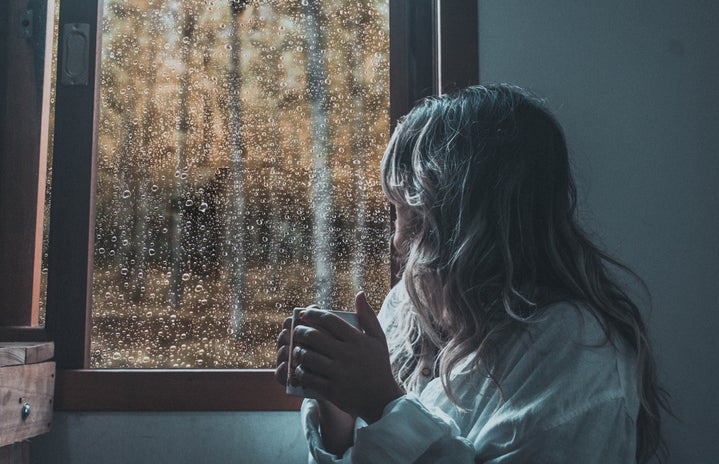I spent part of my summer in a small town called Pinzolo in the Italian Dolomite mountains. It’s a place I know well, having spent about a month there the year after I graduated from high school. To clarify, I lived in Carisolo, which was a quick 26-minute walk down an empty road, across a bridge, through a piazza, and a few blocks to my cousin’s apartment, a walk that I did nearly every night alone on poorly lit streets. It was honestly a little creepy, but I managed, with my biggest fear being the potential wolf my friends THINK they saw one night, and the cars that sometimes whizzed by a little too fast for comfort. I carried around a Birdie, or a small personal safety alarm, which I proudly brandished to my friends in the piazza the day after their possible wolf sighting. I pulled the key out, sounding the alarm, and they laughed so hard at how everyone in the piazza turned at the noise; I, too, started laughing and couldn’t get the small key back inside. Two very long minutes later, I managed to make the Birdie stop screaming and a friend remarked, “I think that will work,” before we all started laughing again.
Maybe I was being a little flippant, as the Dolomites were a far cry from the pick-pocketers and dangers of Milan, where I spent most of my spring, but I really didn’t dwell on how I wasn’t armed with the usual pepper spray until I was leaving my friend’s house one night; her sister and a group of primarily female friends smoking in darkness near the doorstep stopped me. She asked, “Can I ask you a question?” and I readied an answer for what I expected to be a question about the upcoming American presidential election, but instead she asked, “Would you rather see a man or a bear?”
I, like many women, remembered this question that blew up on social media with the prevailing idea being an American woman who is alone in the woods would rather meet a bear than a man she didn’t know. For me, it was a split-second decision: “Bear.”
“So, it’s true,” one girl remarked, “the U.S. is really like this? Women prefer the bear!” What followed was a chorus of “how do you live there,” “aren’t you scared,” etc. I tried my best to explain to them why I felt much safer as a woman in Italy than the United States, and that conversation stayed with me, more than any souvenir. So, I felt that it was particularly important for me to write about it now, especially with the start of a new school year, which can bring so much joy, but also so much danger to a college woman.
I began by explaining that in the two years since they’d seen me, I’d finished my sophomore year, and during my three semesters in the United States I had heard of at least ten people who had been sexually assaulted. I didn’t know how to tell them that I always carried pepper spray, even in the small city of Scranton, and that I made sure to stay on-campus after dark unless I was in a group. In Milan, I was vigilant, but even in that big city, most of the time I felt safe, and I hadn’t had any issues with being followed or approached. Of course, caution was always necessary, but I felt much safer there compared to here in Scranton.
The fact of the matter is that the United States has an innate problem where women often experience extreme violence, typically from men. According to the Center for Disease Control, “one in three women in the United States are victims of sexual assault, and one in 26 men have experienced, completed, or attempted rape, according to national data.” The potential for assault is particularly relevant for those of us in college, according to RAINN: “Women ages 18-24 are at an elevated risk of sexual violence, and among undergraduate students, 26.4% of females and 6.8% of males experience rape or sexual assault through physical force, violence, or incapacitation.” The odds of being attacked by a bear are 1 in 2.1 million people. I’ll take the bear.
One video by @dontceceme on YouTube compiled a harrowing list of comments from videos shared on social media with the “man v. bear” hashtag, including “the worst thing the bear can do is kill me,” “the bear doesn’t get enjoyment out of it,” and “the bear sees me as a human being.” One of the most impactful comments reads, “if a bear attacks me, people will believe me.” These comments prove that women don’t feel safe with a strange man alone.
I don’t mean to villainize men, but I know the statistics don’t lie; National Police reports confirm that 80-90 percent of reported (many cases go unreported every year and are not included in this number) assaults are committed by men. I am a very lucky woman who is surrounded by very good male friends, a wonderful boyfriend, and brothers. However, I also understand that not all men can be like the people I know; I daresay I know equally as many men who I don’t trust. I’ll take an animal that is not likely to attack me over a random man.
More importantly than the choice, man or bear, is why the question exists in the first place. It exists because of the violence present within our culture towards women. It’s hard to explain why or how, but somehow our nation has fostered a culture where a man cannot take “no” from a woman, where a man can treat us as mere objects. It is something impossible for me to rationalize, yet it has been normalized by our culture for generations. I am not shocked when I read an article about an assault in the news. Maybe it is because our bodies, even in the eyes of the law, are not completely ours to control, or the history of injustices faced by women in our country, however, it must stop. Ideally, this viral debate might spark real change, as it demonstrates that American women are fundamentally afraid of the potential violence an unknown man could do to them. However, since it seems that lawmakers have not made real change, consider this a call to action. We need laws that protect women, and for men to step up and treat women with the respect they deserve so that women do not have to live in fear.
Works cited:
https://edition.cnn.com/2024/05/06/us/man-bear-safety-tiktok-question-cec/index.html


